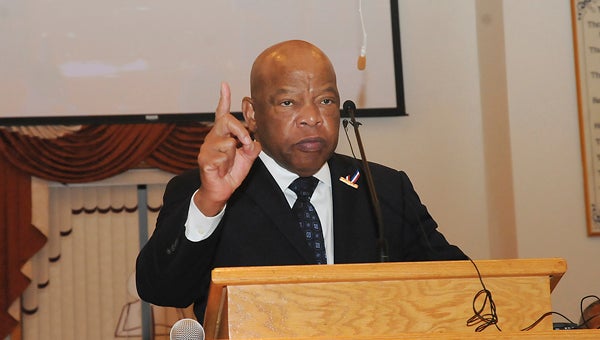Convicted trooper released after 25 years
Published 10:39 pm Monday, October 15, 2012
Sunday morning a convicted murderer walked out of the Limestone Correctional Center and headed to his new home in Boaz.
Joe Cecil Duncan Jr. was released from prison exactly 25 years to the day he shot his State Trooper girlfriend, Elizabeth Cobb in the head three times in October 1987.
Cobb was one of three female Alabama State Troopers at the time of her death and was the first female state trooper to be killed in the line of duty.
According to the book True Heroines: Police Women Killed in the Line of Duty, Cobb had fulfilled a longtime dream of becoming a state trooper with her graduation from the trooper academy in Selma in 1987. After 18 weeks of training she was elected secretary-treasurer of the first platoon Alabama state trooper recruit class 86-A. Her ultimate goal was to become an investigator for the ABI. But she never saw that dream come true.
“My job was not to make a decision as to whether or not someone is guilty or innocent,” Henry Pitts, Duncan’s former defense attorney said. “My job was to represent him to the best of my God-given ability.”
And Pitts did just that. After Duncan was convicted of capital murder, the case was appealed and Pitts, along with J.L Chestnut defended him. The Birmingham News called Pitts and Chestnut an unlikely pair because they represented opposing parties in the trials of the Selma-to-Montgomery Civil Rights marches.
“Throughout the whole time I represented Joe, he was very intelligent, smart and a little bordering on self-centered,” Pitts said. “He thought a lot of himself and he thought a lot of the position he had as a state trooper.”
Pitts said he was shocked when he received several letters from Duncan recently.
“I have accomplished a great deal while being in prison,” Duncan wrote in a letter to Pitts. “I wrote two Christian books and I have been offered a publishing contract.”
He went on to list in another letter his biblical accomplishments, how he overcame adversity and learned to paint and teach Sunday school. In the letters Duncan does not admit to any involvement in Cobb’s death — something he did in the courtroom as well. On the stand he said he pleaded guilty to “the charges against me,” but not specifically Cobb’s death and never let out details of the murder.
Duncan wrote these letters to thank Pitts for his work in keeping him off of death row.
“I would in all likelihood be dead by now,” Duncan wrote. “I hope someday to be able to demonstrate thank you instead of just speaking those words.”



